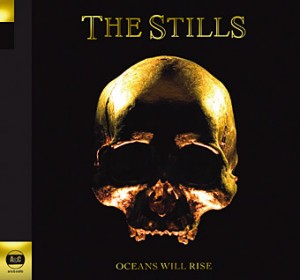Decemberists – Hazards Of Love
The Decemberists will never sound totally current. Colin Meloy’s antiquated poetry, coupled with the Portland, Ore. five-piece’s intricate story-song structures, grandiose arrangements, and maudlin, medieval subject matter place the band’s poppy, orchestrated folk-rock in a bygone era. To listen to a Decemberists album is to submit to the past, to a period in history as much as a series of songs.
The band’s fifth LP, The Hazards of Love, with a loose concept following its protagonist Margaret through various travails-“Won’t Want For Love (Margaret In The Taiga),” “The Abduction Of Margaret”-is, as expected, not a straightforward rock record. Its intricacies and shifting narratives demand attention and patience, as do most concept albums. And Hazards’ faults are the same ones that afflict most concept albums: the listener wants the song, not necessarily the story.
To that end, “The Hazards of Love (The Prettiest Whistles Won’t Wrestle the Thistles Undone), and “Isn’t It A Lovely Night,” and, of course “Prelude” and “An Interlude” function more as set pieces than stand-alone songs. That Meloy had planned The Hazards of Love as a musical is not a surprise; often, the songs feel as if they are supporting a set change, preparing for a grand entrance.
But when those entrances occur, as on “The Wanting Comes In Waves/Repaid,” “The Rake’s Song,” “A Bower Scene,” the band shows a refreshing and previously unheard muscle and conviction. “The Wanting” is the album’s cornerstone, a blues stomp with a huge De Stijl-era White Stripes riff. The indignation and force of the lyrics, sung by My Brightest Diamond’s Shara Worden, is explosive. “Won’t Want For Love” again squares Worden’s vocals over a simple and effective heavy-blues riff. The simplicity pays off.
“Bower Scene” and “The Abduction Of Margaret” highlight the successes of The Hazards of Love. The songs share the exact same melody-a concept-cohesion tactic employed throughout the album. Yet it’s the simple, unaffected propulsion of the music, and not the tale being told or the witty lyrical wordplay that has the greatest impact. The band is still stuck in the past, but by flexing its muscles and eschewing its grandiose tendencies, it has kept itself a present musical presence.
[audio: https://austintownhall.com/wp-content/uploads/2009/01/thedecemberists_therakessong.mp3]Download: The Decemberists – The Rake’s Song [MP3]








